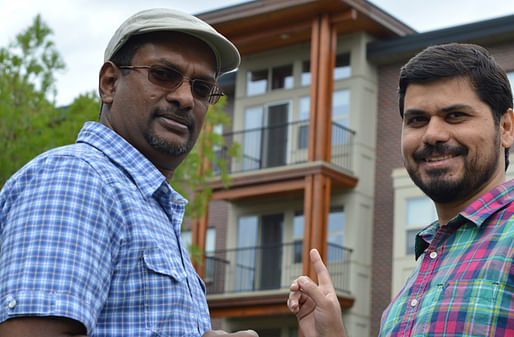
Researchers from the University of British Columbia have suggested that modular construction techniques are key to assuaging cities' housing shortages.
Associate engineering professor Kasun Hewage at UBC, along with PhD candidate Mohammad Kamali, conducted "the first comprehensive review of conventional and modular construction research of its kind," and found that increased factory-produced housing should make it easier for prospective renters and buyers to find a place. It would help cities provide more options that can be built "cheaper, faster and results in fewer workplace injuries," according to Hewage. Their findings were recently published in the journal Renewable and Sustainable Energy Reviews.
Modular construction is obviously not a new method, but has a bit of a negative rep according to the researchers—the public tends to associate the method with lower-quality structures, and communities like trailer parks. But the study, which reviewed construction data between 2000 and 2015 throughout Canada, provides incentives to reconsider that image, and invest more in modular construction and factory-built housing world-wide.

Says Kamali: “The next step in our research is to develop a tool that offers consumers, developers and government decision-makers the option of comparing the sustainable construction aspects of modular and conventional construction methods."
More modular News on Archinect:
4 Comments
It's not easy to secure a loan for a pre-fab home...it's considered a vehicle until it's secured to a foundation and on a plot of land...which makes it a bad option for cities and suburbs as urban raw land costs are typically high and scarce. Most Mobile home parks lease the land and home.
Priced it / tried to buy one, zoning will stop you below 1,400SF if you try to build it near civilization, then the transportation cost will wipe out any perceived economy…different if you’re stacking them 57 stories high.
One of the keys to solving some of the points mentioned are "Pilot Projects", standardization and proof of concept from know industry players, provincial and municipal inclusion, provincial architectural involvement, building inspector participation, getting all the red tape on the same side requires considerable organizing. The sooner this happens the more realistic a consistent solution will develop. Brtico from Langley, BC is very well known across the province and could most likely get any single or MDU project approved within a reasonable amount of time, that's if they had a product to offer the mid-market. They are currently only offering custom solutions.
The claim in media release that modular is a solution to assuaging cities' housing shortages seems a bit of a stretch, as (at least as described in the abstract) the researchers concluded "that, on average, modular buildings have been shown to provide a better life cycle performance, for example a building׳s energy performance, among others".
So better performance yes, but not necessarily cheaper (in near tearm / construction costs) and/or faster. Although I believe other studies may indeed have indicated that already...
Block this user
Are you sure you want to block this user and hide all related comments throughout the site?
Archinect
This is your first comment on Archinect. Your comment will be visible once approved.